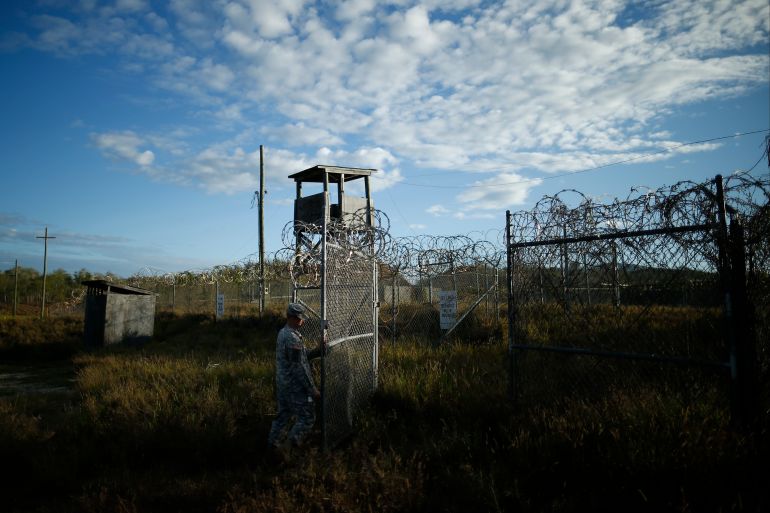Twenty-nine prisoners remain at the US detention facility in Cuba after the transfer of Mohammed Abdul Malik Bajabu.

The United States has released Guantanamo Bay detainee Mohammed Abdul Malik Bajabu to Kenya, bringing the number of prisoners at the facility to 29.
The Pentagon announced Bajabu’s release on Tuesday, saying Secretary of Defense Lloyd Austin had notified Congress of the decision to repatriate him to Kenya last month.
Bajabu was arrested by Kenyan authorities in Mombasa in 2007 and transferred to Guantanamo weeks later for alleged involvement with al-Qaeda’s branch in East Africa.
The Periodic Review Board, which assesses the status of detainees, determined in 2021 that Bajabu “was no longer necessary to protect against a continuing significant threat to the national security of the United States”.
Reprieve US, which represented Bajabu, welcomed his release, saying that he was tortured by Kenyan authorities as well as US military personnel.
“The US robbed an innocent man of the best years of his life, separating him from his wife and young children when they most needed him,” a lawyer who helped represent Bajabu said in a statement.
“His children, infants when he was tortured, interrogated and shipped to Guantanamo, are now grown. That debt can never be repaid, but the least the US can do is ensure that Abdulmalik receives the support and the space he needs to begin his life anew.”
The Guantanamo detention facility opened in 2002 to house detainees captured during the so-called “war on terror” after the 9/11 attacks.
Located at a US military base in Cuba, the prison operates under a legal system led by military commissions that do not guarantee the same rights as traditional US courts.
Detainees cleared for release sometimes spend years at Guantanamo as Washington looks for countries to take them after they are freed.
The prison once housed nearly 800 detainees, many of whom initially spent time at covert CIA locations known as “black sites”, where they were tortured under the “enhanced interrogation” programme authorised by former President George W Bush’s administration.
Guantanamo has become a lasting symbol of US abuses during that era.
Barack Obama, who succeeded Bush, had promised to close down the facility, but he failed largely due to legal technicalities and domestic political opposition.
Of the 29 detainees who remain at Guantanamo, 15 are eligible for transfer, according to the Pentagon.
In July, Khalid Sheikh Mohammed, the alleged mastermind of the 9/11 attacks, and two other detainees reached a plea deal that would see them spend the rest of their lives in jail without the prospect of a trial where the government would seek the death penalty for them.
But Austin blocked the deal after an outcry from some conservative lawmakers and families of victims of the attack.
A military judge reinstated the plea agreement, but the Pentagon is appealing that decision.
On Tuesday, the Pentagon said that it aims to eventually close the detention centre in Guantanamo.
“The United States appreciates the support to ongoing US efforts toward a deliberate and thorough process focused on responsibly reducing the detainee population and ultimately closing the Guantanamo Bay facility,” it said.